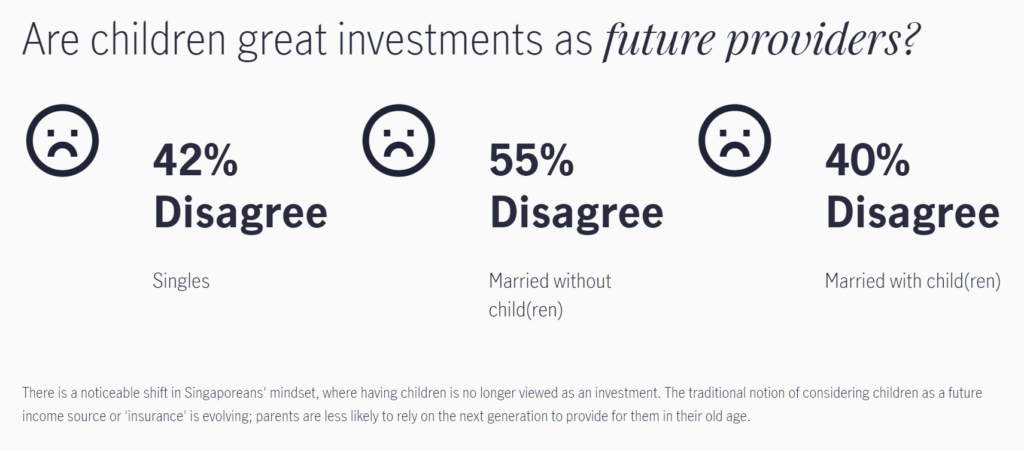
Insights + interviews
Navigating Financial Priorities: Insights from the Manulife Asia Care Survey 2024
The recently conducted Manulife Asia Care Survey 2024 sheds light on shifting family financial dynamics among Singapore respondents.
As the younger generation redefines priorities, the survey reveals intriguing trends that impact both individual well-being and societal expectations.
Children as Investments: A Deep-Rooted Perspective
Singaporeans continue to perceive children as “great investments” for retirement. While this perspective has historical roots, it places additional strain on today’s younger generation. Relying solely on children for future financial support may not be sustainable, especially given economic uncertainties.

Well-Being Goals and Financial Confidence
The survey highlights significant gaps in well-being goals and financial confidence. Despite future aspirations, only 61 percent of Singapore respondents express confidence in achieving their top financial objectives.
Key concerns include rising healthcare costs, inflation, and the cost of living. Bridging this gap requires enhanced financial planning and tailored product offerings.
Youth Prioritise Experiences
Singaporean youth (aged 25-29) stand out with their unique financial goals. Unlike their peers in other regions, they prioritise “enjoying overseas vacations” and “maintaining current lifestyle.” Retirement-related goals do not feature prominently. To support these lifestyle choices, many take on second jobs and invest in stocks.
The younger cohort presents an interesting study in motivation and shifting cultural dynamics. Their preference for short-term experiences over long-term financial security signals a need for the financial sector to rethink how we can better cater to the evolving needs of younger consumers in Singapore, ensuring they can balance present enjoyment with future security. The early years of working are one of the best times to start thinking about future financial security – we need to bring this message across to our younger consumers clearly.
Mark Czajkowski, Chief Marketing Officer of Manulife Singapore
Breaking the Cycle of Expectations
The survey underscores evolving societal norms. While the desired number of children remains at 1.5, hesitation exists among married couples without children. Strikingly, 60 percent of respondents intending to have children view them as investments.
This traditional perspective calls for independent retirement planning beyond relying on offspring.
Interestingly, while respondents expect financial support from their children, they see the responsibility of supporting dependent parents as a financial burden. Approximately 55 percent of respondents express this sentiment.
This paradox highlights a cycle of financial obligations: parents supporting children, who in turn become the financial backbone for elderly parents. The expectation of financial support from the older generation may strain the younger cohort further, emphasising the urgency for independent retirement planning.
Images and video from Taking Care of your Future Self website.






